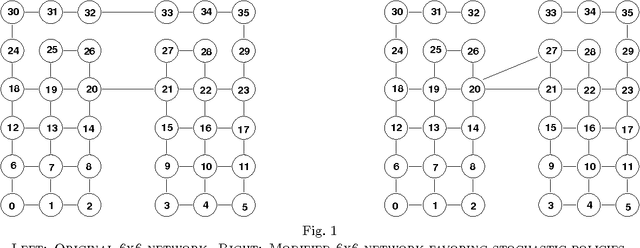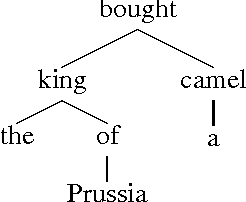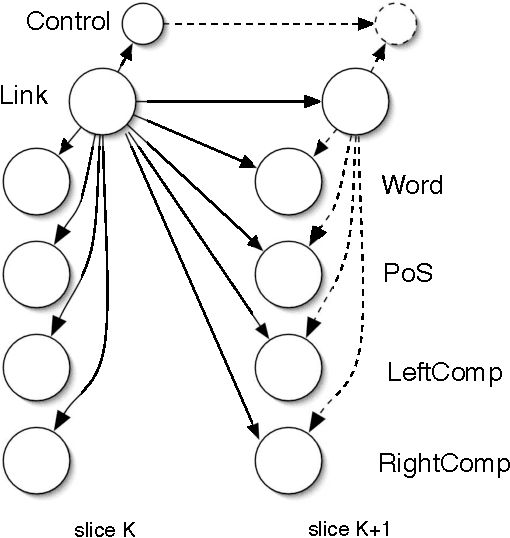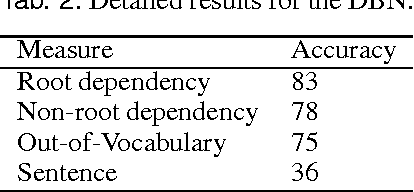Virginia Savova
Matroids Hitting Sets and Unsupervised Dependency Grammar Induction
Jul 15, 2017



Abstract:This paper formulates a novel problem on graphs: find the minimal subset of edges in a fully connected graph, such that the resulting graph contains all spanning trees for a set of specifed sub-graphs. This formulation is motivated by an un-supervised grammar induction problem from computational linguistics. We present a reduction to some known problems and algorithms from graph theory, provide computational complexity results, and describe an approximation algorithm.
Reinforcement Learning for Adaptive Routing
Mar 28, 2007

Abstract:Reinforcement learning means learning a policy--a mapping of observations into actions--based on feedback from the environment. The learning can be viewed as browsing a set of policies while evaluating them by trial through interaction with the environment. We present an application of gradient ascent algorithm for reinforcement learning to a complex domain of packet routing in network communication and compare the performance of this algorithm to other routing methods on a benchmark problem.
Dependency Parsing with Dynamic Bayesian Network
Mar 27, 2007



Abstract:Exact parsing with finite state automata is deemed inappropriate because of the unbounded non-locality languages overwhelmingly exhibit. We propose a way to structure the parsing task in order to make it amenable to local classification methods. This allows us to build a Dynamic Bayesian Network which uncovers the syntactic dependency structure of English sentences. Experiments with the Wall Street Journal demonstrate that the model successfully learns from labeled data.
* 6 pages
Part-of-Speech Tagging with Minimal Lexicalization
Dec 27, 2003



Abstract:We use a Dynamic Bayesian Network to represent compactly a variety of sublexical and contextual features relevant to Part-of-Speech (PoS) tagging. The outcome is a flexible tagger (LegoTag) with state-of-the-art performance (3.6% error on a benchmark corpus). We explore the effect of eliminating redundancy and radically reducing the size of feature vocabularies. We find that a small but linguistically motivated set of suffixes results in improved cross-corpora generalization. We also show that a minimal lexicon limited to function words is sufficient to ensure reasonable performance.
 Add to Chrome
Add to Chrome Add to Firefox
Add to Firefox Add to Edge
Add to Edge